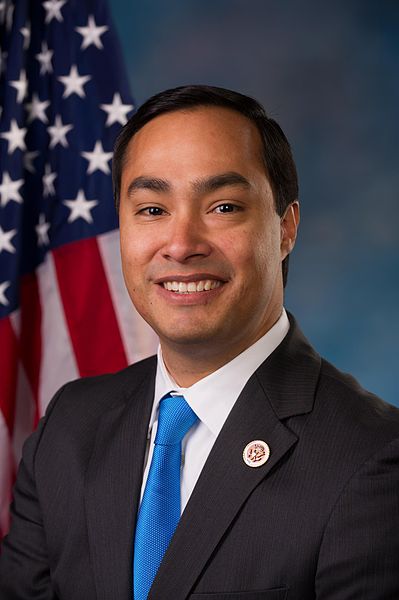Born and raised in San Antonio, Texas, Congressman Joaquín Castro represents the 20th Congressional District of Texas. Having served in the Texas state legislature for five terms, he now serves on the House Armed Services Committee and the House Foreign Affairs Committee in his second term in the U.S. House of Representatives. A second generation Mexican American, Congressman Castro is a strong advocate for immigration, education, and healthcare reform.
Harvard Political Review: How do you think the current politics of the elections affects the possibility of getting comprehensive immigration reform done, and what is the best strategy to counter hateful political views that are currently coming out into the open about immigration?
Joaquín Castro: In terms of passing immigration reform, I believe that it will get done in the coming years. It’s hard to say exactly when, unfortunately. We missed an opportunity in 2013 and in 2014, after the Senate passed SB 14* and the House Speaker refused to put it on the floor for a vote, despite the fact that it had enough Democratic and Republican support to pass. Donald Trump, Ted Cruz, and the other Republican candidates have turned the discussion over immigration into a nasty one. They have made it harder for the parties to come together and for Americans to come together on a solution. I think that this ugly moment will pass, and ultimately I think that it will find confidence.
HPR: You served both in the Texas state legislature and now in Congress. What surprised you most about the transition from working at the state level to the national level?
JC: The pace. It’s interesting that in Congress you have 435 members of the House of Representatives, most of whom are working 10 or 12 hours a day while we’re in Washington. Yet, the output of Congress as a whole doesn’t match the input of all the hours that people are individually putting in. It’s strange to see everybody running around for 10 or 12 hours a day, but Congress over the last 4 years has been the least productive in American history, measured by the number of bills sent to the President’s desk. So that has been the strangest adjustment for me. In Texas, we were voting on legislation after legislation. Our session is 140 days every other year, but we were voting on thousands of pieces of legislation every session.
HPR: What are your priorities as a Representative of the 20th District?
JC: A lot. I have a district that’s, in many ways, a bread and butter district, a very working class district. It actually has the full income range, but much of the population are working class and so people are concerned about education. I’ve worked to expand pre-kindergarten education, for example. I’ve worked on healthcare issues. I’ve been a staunch defender of the Affordable Care Act and have worked in San Antonio, specifically, on outreach so that as many people as possible know that there’s affordable coverage out there. Of course, I’m working on my committee assignments for Armed Services and Foreign Affairs. For example, right now, I have a bill that I’m expecting will go to the House floor soon that’s called Global Development Lab legislation. It’s a way to improve the way we do development systems throughout the world. I’m excited about that. Then, of course, all of my constituent work. San Antonio has a high concentration of veterans, so we’ve recovered millions of dollars for our constituents in social security benefits and other federal benefits. All of those things are things that I’m proud of.
HPR: You did a lot of work in education while in the Texas state legislature serving as the Vice Chairman of the Higher Education Committee. What do you think we should do now to make sure that we can increase college matriculation and graduation rates for students across our country?
JC: In Texas and in many other states, we face deep challenges because there’s an issue of access, getting people into college, but also an even deeper challenge in completion. Many folks are surprised to know that our college graduation rates are often lower than our high school graduation rates. I’ve always believed that we need to streamline and improve developmental education, for example, because that’s the graveyard of higher education, so that people don’t give up after their first year or second year. So for completion, that’s the important part. In terms of matriculation, I think we need a better college advising system. The one active board that I stayed on when I came to Congress is the College Advising Corps. It does what Teach for America does, but instead of placing recent college graduates in school to do teaching, it places them in schools just to do college advising. Reforming the college advising system is incredibly important in getting people onto college and broadening their horizons. Then, of course, financial aid, particularly in low-income and middle-income areas. People have to know that they’re going to be able to afford making it through college, so making sure that we expand financial aid for students is extremely important.
This interview has been edited and condensed.
Image source: Wikimedia/Office of Congressman Joaquín Castro
